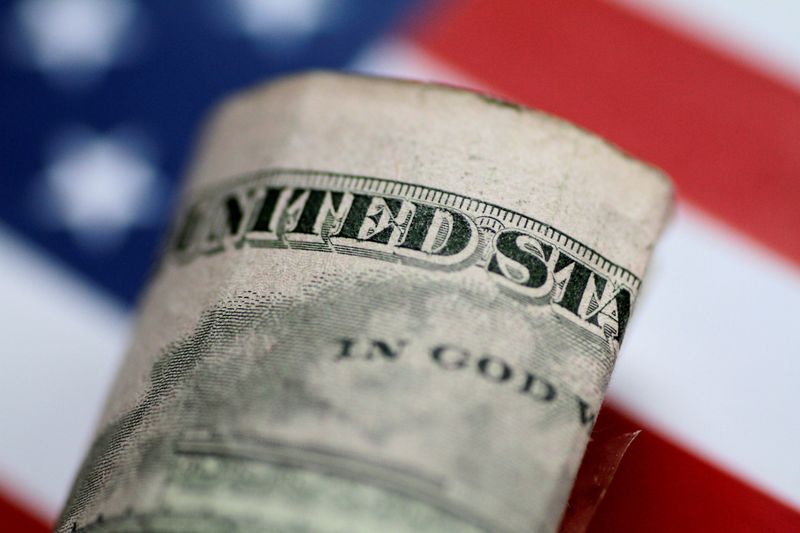Investing.com’s stocks of the week
By Andrea Shalal
WASHINGTON (Reuters) -The U.S. Treasury Department on Thursday said no major U.S. trading partner manipulated its exchange rates to gain unfair competitive advantage through June 2022, but said it would stay in close touch with Switzerland on its currency practices.
The bulk of interventions seen were aimed at strengthening currencies, not weakening them, Treasury said in a semi-annual report, while acknowledging that emerging and developing economies might need a range of approaches - including intervention - to respond to current global economic conditions.
A senior Treasury official told reporters that the dollar's strength against other currencies could begin to ease as monetary tightening by the Federal Reserve peaked and other central banks caught up.
"The global economy was already dealing with supply and demand imbalances caused by COVID-19 prior to Russia's illegal war against Ukraine, which has increased food, fertilizer, and energy prices - further elevating global inflation and increasing food insecurity," Treasury Secretary Janet Yellen said in a statement, adding that countries' responses could affect currencies.
"Treasury is cognizant that a range of approaches by developing and emerging economies to global economic headwinds may be warranted in certain circumstances," she added.
The report noted that Switzerland once again exceeded U.S. thresholds for possible currency manipulation under a 2015 U.S. trade law, but refrained from branding it - or any other country - a currency manipulator.
Treasury said it would continue enhanced analysis of Switzerland's macroeconomic and exchange rate policies, while setting forth an enhanced bilateral engagement that began in early 2021 to discuss Swiss policy options for tackling external imbalances.
Treasury said seven economies were on its "monitoring list" - China, Japan, Korea, Germany, Malaysia, Singapore, and Taiwan.
Vietnam was removed from the list, it said, adding that it remained satisfied with progress made by the Asian country in addressing U.S. concerns about its currency practices. India, Italy, Mexico and Thailand were also removed from the list, Treasury said.
The Treasury report again called out China for its failure to publish foreign exchange intervention and the broader lack of transparency around key features of its exchange-rate mechanism.
A senior Treasury official said efforts by the U.S. Treasury and the International Monetary Fund had failed to make any headway with Beijing on the issue so far.
Treasury noted that Japan had intervened in the foreign exchange market to stem the pace of depreciation in the yen, its first such move since 1998, and underscored its believe that such actions should be taken only rarely.
"Treasury's firm expectation is that in large, freely traded exchange markets, intervention should be reserved only for very exceptional circumstances with appropriate prior consultations," it said.
